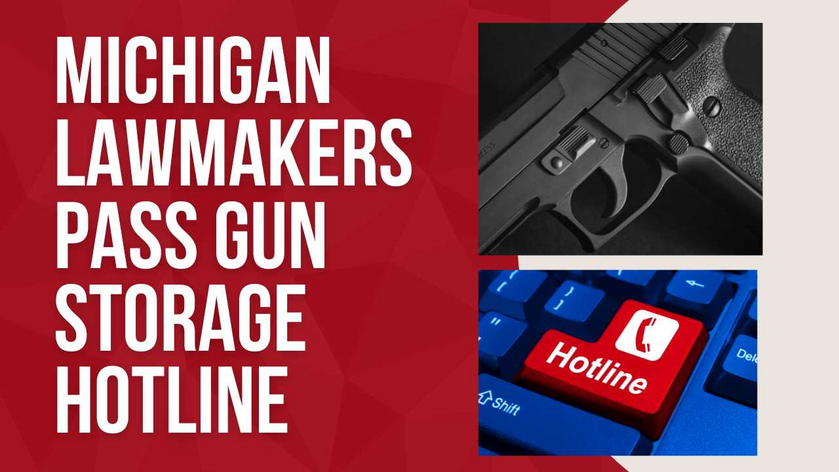In a move that has sparked both applause and controversy, the Michigan Legislature passed a bipartisan amendment to House Bill 5503, creating a $1 million anonymous tip line for students to report improperly stored firearms in their homes. This provision, which is part of the state's K-12 school budget, has ignited debate over privacy, Second Amendment rights, and school safety.
The Legislation and Its Provisions
The amendment, added to the School Aid budget for the 2024-2025 fiscal year, allocates up to $1 million to an intermediate district to partner with the Michigan Department of Education. The goal is to establish a tip line where students can report improperly stored firearms accessible to minors. Additionally, the Department of Education will distribute educational materials to schools, educating students on how to identify and report unsafe firearm storage practices.
The passage of HB 5503 marks a significant moment in Michigan's approach to gun safety in schools. The bill passed in the House by a 98-11 margin and in the Senate by a vote of 23-15, with support from both Democrats and some Republicans.
Support and Criticism
Proponents of the measure, including many Democratic lawmakers, view the tip line as a critical step toward enhancing school safety and reducing gun violence. Representative Regina Weiss (D-Oak Park) praised the legislation, emphasizing the state’s commitment to the safety of children: "Michigan Democrats are taking transformational steps to meet the needs of our kids, our parents, and our teachers."
However, Republicans and gun rights advocates have expressed concerns about the implications of this amendment. Critics argue that the hotline could lead to unwarranted government intrusion into families' private lives, with fears that the program could be used by children to make false reports out of anger. They also worry that the hotline will unfairly target gun owners and violate their constitutional rights.
Senator John Damoose (R-Harbor Springs) voiced concern that the bill is part of a broader effort to enforce "the left's gun control agenda." Similarly, Senator Thomas Albert (R-Lowell) referred to the provision as "a tattletale provision" that could infringe on parents' rights.
The Great Lakes Gun Rights organization condemned the amendment, claiming it mirrors the practices of a "totalitarian police state." The group also questioned the role of law enforcement in investigating anonymous tips and the potential legal ramifications for families targeted by the hotline. “Doesn’t that violate a person’s right to face their accuser and the presumption of their innocence?” the organization asked in a public statement.
Click here to read the legislation.
Concerns from School Leaders
School officials across the state have expressed skepticism about the budget amendment, particularly the introduction of a gun storage hotline. Many have called for more transparency in how these funds will be allocated and what protocols will be in place to protect families from unfounded accusations.
"The $125 million allocated to mental health and school safety programs is vital, but this $1 million provision creates serious questions," said one school district leader, requesting anonymity. "There needs to be more clarity about how these anonymous tips will be handled and what safeguards will protect students and families."
Republican Backlash and Political Implications
While some Republicans supported the measure, others, like Representative Bryan Posthumus (R-Rockford), accused Democrats of using the budget amendment as a political tool. "Now that it’s election season, Democrats are trying to appeal to the public school establishment by pushing through this half measure," Posthumus said. He further criticized the bill for allegedly cutting $300 million from other school programs.
In the midst of this backlash, State Representative Brad Paquette (R) publicly expressed regret for his vote in favor of the bill, saying he did not fully understand the implications of the amendment.
The NRA's Role
Capitol insiders have reported that the National Rifle Association (NRA) did not object to the provision, which gave Republicans some cover in voting for the bill. However, this has led to further debate within the gun rights community, with some questioning the NRA's decision to remain neutral on such a divisive issue.
Looking Ahead
The passage of HB 5503 has set the stage for a larger discussion about the balance between gun safety and civil liberties. While many agree on the importance of responsible firearm storage, the introduction of an anonymous tip line raises serious questions about privacy, legal rights, and the potential for abuse.
As the program is implemented, lawmakers and advocates on both sides of the issue will be closely monitoring its effects, especially as Michigan heads into the 2024 election season, where gun control and school safety are likely to remain central issues.




















